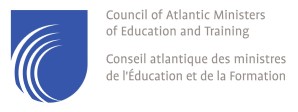
TOOLKIT FOR
POST-SECONDARY
STUDENTS
Combine self-knowledge and educational/labour market information to make informed career decisions and to navigate career transitions in today’s ever-changing labour market.
You can demonstrate your ability to navigate career transitions through:
- Understanding and leveraging the influence of family, friends, culture, government policies and regional economic development on your career exploration and choices
- Using a variety of strategies and sources of information to explore options for learning and work
- Identifying possible career paths through research (e.g., print, participation, online)
- Actively pursuing and engaging in work experience (e.g., job shadowing, co-ops, internships, youth apprenticeship, volunteering)
- Embracing opportunities to get, combine or create work (e.g., apprenticeship, part-time, full-time, self-employment, “gigs” and contracts)
- Recognizing what impacts, and is impacted by, seasonal work
- Examining how rural and regional economies can impact career opportunities and decisions
- Creating your own personal marketing strategy (e.g., write targeted resumés and cover letters, interview with confidence)
- Gathering and evaluating detailed information resulting from your career exploration process
- Discussing, sharing and evaluating your career options with others
- Explaining your reasons for choosing a career pathway based on who you are, the opportunities you have explored, and labour market information
- Being resilient and able to maneuver through transitions, always having a Plan B (and C and D…)
Natalie is grateful that her diploma program had an internship component. Within the first few days, she realized that the work isn’t at all what she expected. Although she’d spoken to several people in the field before choosing her program, and they’d all told her how much they enjoyed the work, Natalie recognizes that it just isn’t a fit for her. She manages to complete the internship but feedback from both her instructor and internship supervisor confirms her own assessment – this wasn’t for her!
However, Natalie’s internship supervisor is impressed with her as a person and sees a good overall fit with the company. The supervisor tells Natalie about an entry-level position in another part of the company. Natalie applies, is interviewed and is offered a job. She discusses the job offer with her instructor and internship supervisor. Both agreed that it seems like a wonderful opportunity for now and a chance to develop some valuable competencies. Natalie knows this is a growth industry and her internship supervisor agrees to be a mentor for her, helping her to plan for future career development within the organization.






